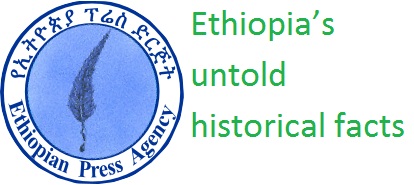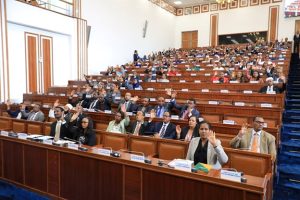
Beyond a reasonable doubt, the Ethiopian history has required comprehensive historical recording suite, so disclosed Authority for Research and Conservation of Cultural Heritages (ARCCH). ARCCH Public and International Relations Director, Fanta Beyene said that the Ethiopian history is not a completed raft recording.
He noted that it was written by political affiliated groups, religiouslybiased individuals and culturally-as well as-ethnic-oriented communities, among others. He further said that the Ethiopian history should be studied by independent party including intellectuals and scholars so as to redress historically-biased problems evidenced previously.
Historian Halemelekot Gizaw pointed out that,normally, primary and secondary sources must be taken as evidences for the confirmation and reliability of the recorded history. He noted that archeologicalfindings and sociological facts are indicators and parameters to study one’scountry historical features.
Based on these parameters, Ethiopia history is written within the framework of secular and spiritual scriptures. He stated that it is either skepticismor misjudgment to audaciously confirm and say that these histories could be neither a portion of Ethiopian history nor not part of it.
He remarked that longing for political domination and wishing to bask under political limelight have resulted in endless arguments and disagreements for the validity and reliability of the conventional recorded history of the country.
He stated that inclusiveness of discourse analysis, comparative elements, timing and context are the tools and the necessary millstones in recording the country’s historical facts . Regarding close to 90 percent of Ethiopian history written by Europeans, he said that though it is written by Europeans, the statements they wrote are neither far from facts nor on the basis of proof or evidences.
Adding, he said that rather it was basic instrument in the recording of partial truth of the country’s history with the grasp of background facts with combine primary and secondary data as well duplicity of problem statements and historical errors. As an instance he pointed out that, even if chronicles are not wellestablished-facts-recording packages because of their political inclination, they are indispensible elements to search for historical events, scopes and specific timetable.
He said that as the Ethiopian history was inscribed in the manner of traditional stake and oral scriptures,the task of gathering and collecting primary data was not thereto verify the secondary data about the country’s history. He seconds Fanta’s aforementioned call for further study to make the country’s history all inclusive.
Herald March 24/2019
BY MEHARI BEYENE





